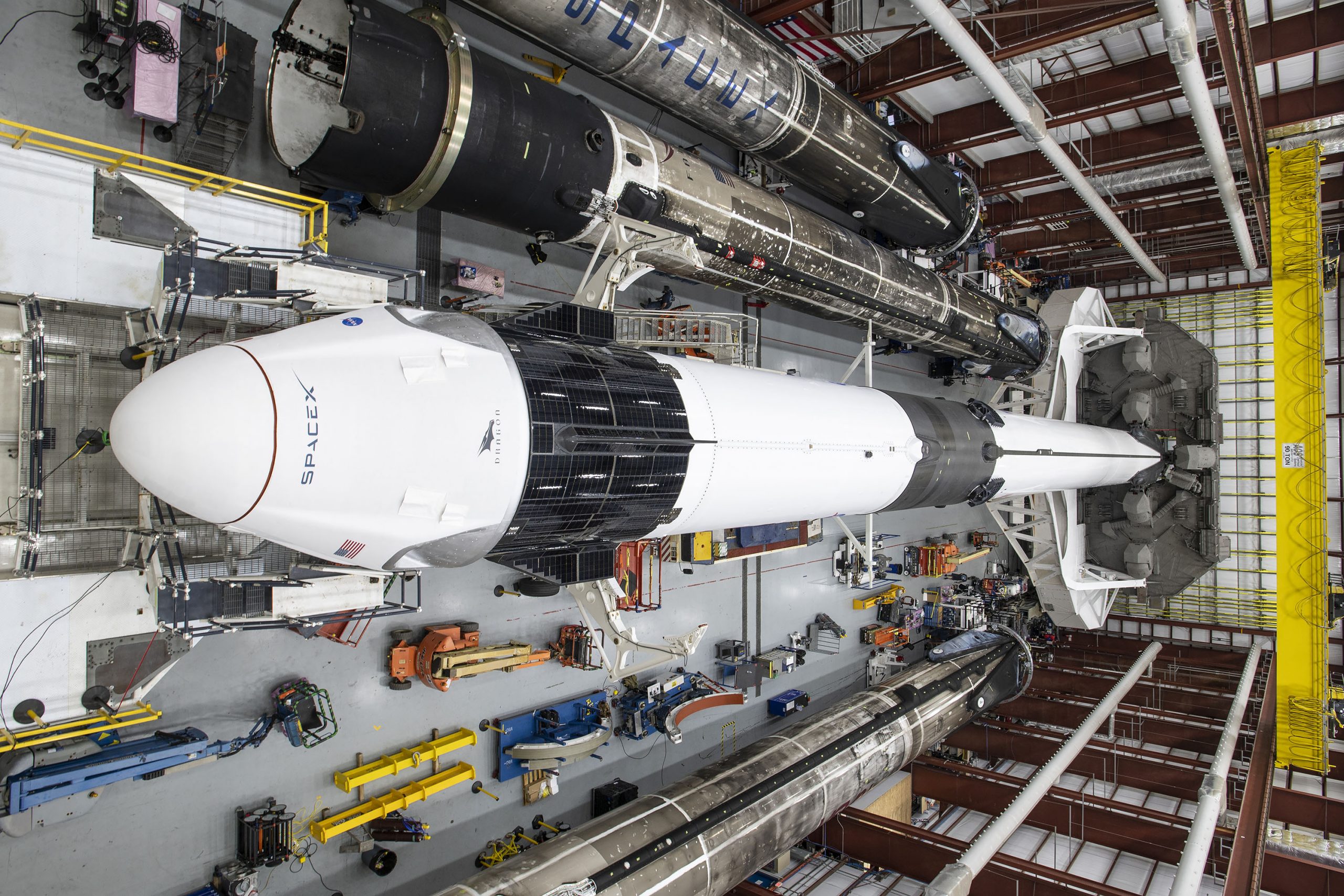

News
SpaceX drone ship departs for upgraded Cargo Dragon launch debut
SpaceX drone ship Of Course I Still Love You (OCISLY) has departed Port Canaveral ahead of an upgraded Cargo Dragon spacecraft’s Falcon 9 launch debut.
Scheduled to lift off no earlier than (NET) 11:39 am EST (16:39 UTC) on Saturday, December 5th, SpaceX’s 21st NASA Commercial Resupply Services (CRS) launch will mark several major firsts.
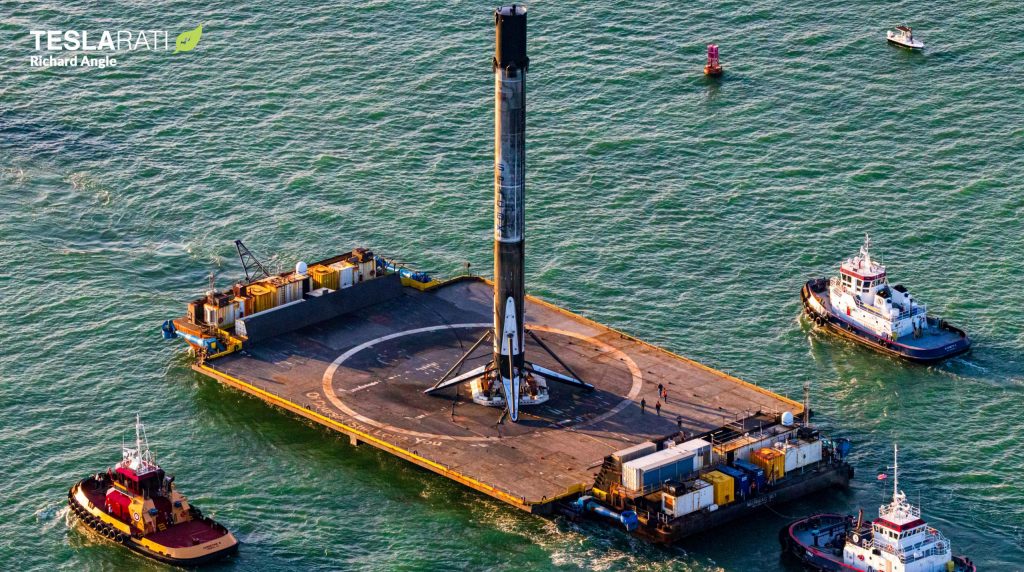
First and foremost, CRS-21 will debut an upgraded Cargo Dragon spacecraft. Derived from Crew Dragon (also known as Dragon 2), Cargo Dragon 2 will also dock with the ISS, utilizing a smaller docking (versus berthing) port that unfortunately limits the width of cargo Dragon will be able to deliver. Aside from improved reusability, SpaceX’s newest cargo spacecraft will otherwise be largely the same as Dragon 1 as far as cargo delivery goes.
Compared to SpaceX’s 20 CRS1 space station resupply missions, Cargo Dragon 2’s CRS2 launches will also be substantially more expensive, on average, though still NASA’s most affordable option. SpaceX executives have explained that cost increase as a result of the company’s growing confidence and greater awareness of its competition. NASA has only guaranteed six CRS2 contracts for three selected providers, leaving the space agency a great deal of leverage to analyze the playing field and issue at least as many new contracts to cover International Space Station (ISS) operations from at least 2023 to 2025.
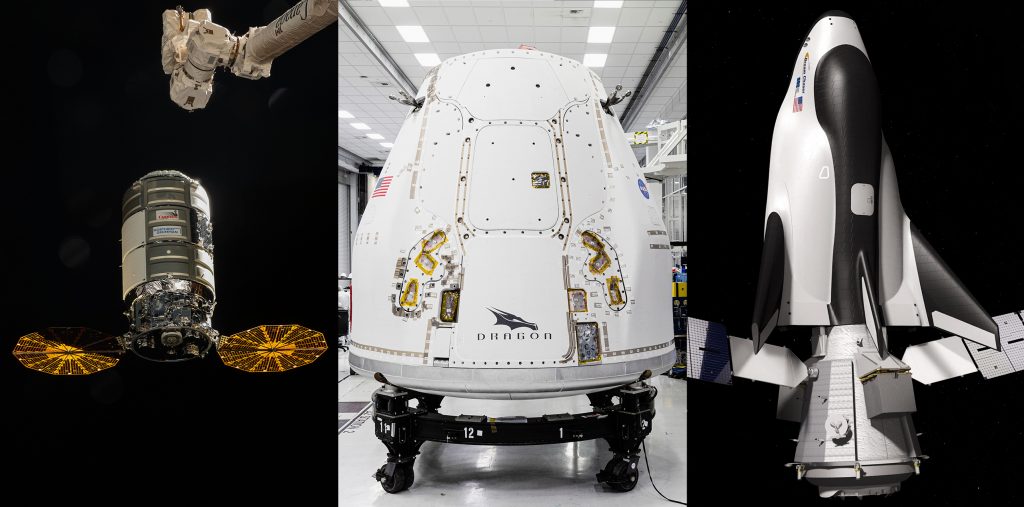
Thanks to experience gained through joint NASA-SpaceX CRS1 contract modifications that allowed multiple Falcon 9 booster and Cargo Dragon capsule reuses, reusability – while again not built in to SpaceX’s CRS2 contract – will assuredly play a central role for most of the company’s future space station cargo missions. Unlike Dragon 1, which was only modified for reuse with an upgrade that debuted several launches into CRS1, the Dragon 2 capsule is designed from the start to fly at least five orbital missions.
NASA has already given SpaceX permission to reuse a more complex Crew Dragon spacecraft to launch astronauts as early as March 2021, so it’s all but guaranteed that the space agency will allow SpaceX to extensively reuse Cargo Dragon 2 capsules to complete its CRS2 contract. If so, it will likely save NASA a significant amount of money when it comes time to award additional CRS2 contracts.
Equally significant, NASA also appears to be upgrading its confidence in SpaceX’s reusable Falcon 9 rockets with CRS-21, permitting the company to reuse Falcon 9 booster B1058 on Cargo Dragon 2’s launch debut. While B1058 did support SpaceX’s Crew Dragon astronaut launch debut back in May 2020, the booster has since flown two more commercial missions, carrying a South Korean communications satellite and a batch of SpaceX’s own Starlink spacecraft in July and October. CRS-21 will be the first time NASA has allowed SpaceX to fly a space agency mission with a booster that’s supported non-NASA missions, implying a new level of trust in SpaceX.
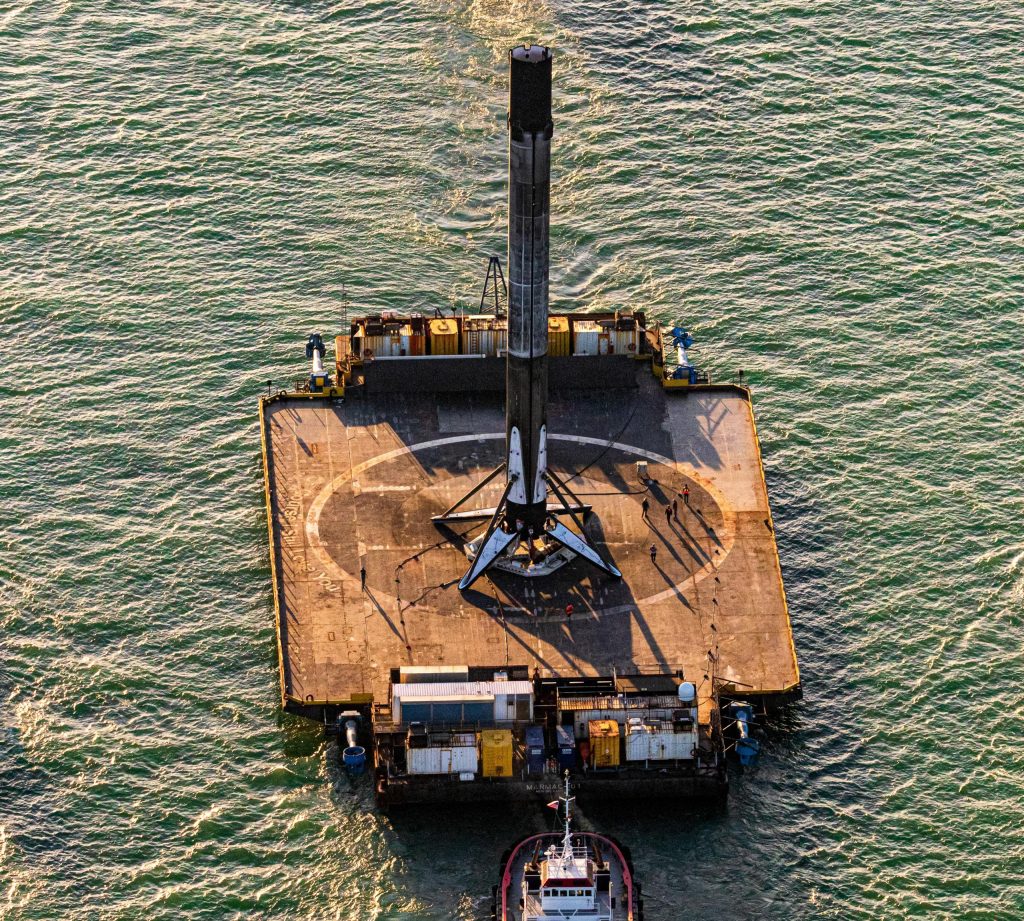
It will also be the first time in history that a new spacecraft has debuted on a flight-proven rocket, as well as NASA’s first flight on both a twice-flown and thrice-flown Falcon 9 booster. If CRS-21 is a sign of things to come, life will be made much easier for SpaceX, reducing or eliminating the need to operate separate booster fleets for commercial and institutional customers.
Finally, CRS-21 will also mark the first time in history that two SpaceX Dragon spacecraft have been in orbit – or at the ISS – at the same time. A senior SpaceX Dragon manager recently noted that after Crew-1’s successful November 15th launch, all future Dragon launches would leave the company with two Dragons in orbit.
Lifestyle
EV fans urge Tesla to acquire Unplugged Performance for edge in fleet and security industry
Unplugged Performance has built a name for itself by producing performance upgrades for Tesla vehicles.
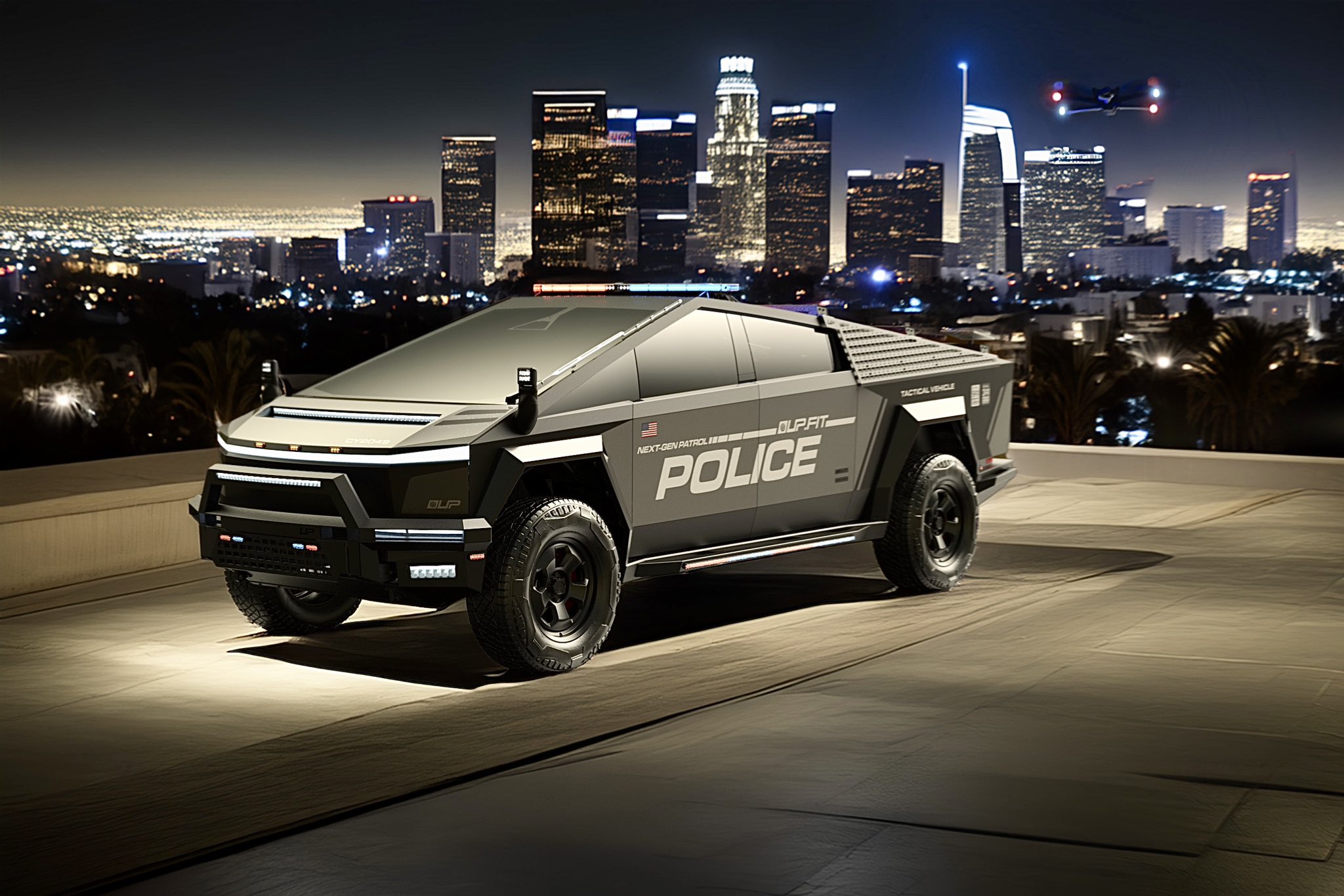
A growing number of Tesla enthusiasts and longtime community voices are calling on the electric vehicle maker to acquire Unplugged Performance, a California-based aftermarket company best known for tuning Tesla vehicles and developing specialized government fleet solutions under its UP.FIT division.
The idea was once considered a niche proposal among EV fans, but it is now gaining serious attention not just as a performance play but as a strategic move to deepen Tesla’s roots in the fleet and security industry.
A strategic fit
Unplugged Performance has built a name for itself by producing performance upgrades for Tesla vehicles, from track-optimized components to visual and aerodynamic upgrades. But in recent years, its UP.FIT division has pivoted toward a more functional future by outfitting Tesla vehicles like Model Ys for police, military, and government use.
That work has sparked growing calls for closer collaboration with Tesla, especially as the EV maker increasingly leans into autonomy, AI, and fleet services as core components of its next chapter.
“I posted this four years ago, but I think it’s more true now than ever,” wrote Whole Mars Catalog, a well-known Tesla investor and FSD Beta tester, on X. “Tesla should buy Unplugged. But not just as a Performance division. What they are doing with UP.FIT unlocks large government and commercial fleet purchases that can improve utilization.”
Tesla fans such as shareholder Sawyer Merritt echoed the sentiment, calling Unplugged a “great fit within Tesla.” adding, “They are literally located directly next to Tesla’s design studio in Hawthorne.”
Enabling the next wave
Supporters of the idea noted that integrating Unplugged into Tesla’s corporate structure could help accelerate the adoption of autonomous technologies in government sectors. With UP.FIT patrol cars already in use across some U.S. police departments, Tesla fans envisioned a future where self-driving Teslas could potentially revolutionize law enforcement, search-and-rescue, and public service logistics.
“Just imagine how autonomous patrol cars could transform policing and bring us into a safer future,” the veteran FSD tester wrote.
The benefits could also extend to Tesla’s existing consumer base. “They also have some incredible products in the works that I think will appeal to many ordinary Tesla drivers — not just those looking for performance or mods. Stuff that’s so good it should have come straight from the design studio next door,” Whole Mars Catalog noted.
Unplugged Performance, founded in 2013, shares not just a product vision with Tesla, but also geography. Its Hawthorne headquarters sits directly adjacent to Tesla’s design studio, and the two companies have maintained a close working relationship over the years. The aftermarket firm has long positioned itself as a “mission-aligned” partner to Tesla.
In response to the recent calls for acquisition, Unplugged Performance acknowledged the support from the community. “Our very existence is to support the Tesla mission with @UpfitTesla and @UnpluggedTesla,” Unplugged CEO Ben Schaffer posted on X. “We love working with Tesla and are grateful for the community’s support since 2013!”
News
Tesla debuts hands-free Grok AI with update 2025.26: What you need to know
All new Tesla vehicles delivered on or after July 12, 2025, will include Grok AI out of the box

Tesla has begun rolling out Grok, an in-car conversational AI assistant developed by xAI, to eligible vehicles starting July 12. The feature marks the most direct integration yet between Elon Musk’s artificial intelligence startup and Tesla’s consumer product lineup, offering drivers hands-free access to a chat-style companion while on the road.
Grok comes pre-installed on new vehicles
According to Tesla’s FAQ page for the feature, all new vehicles delivered on or after July 12, 2025, will include Grok AI out of the box. Owners of older vehicles may gain access through an over-the-air update, provided their vehicle meets a few hardware and software requirements.
Specifically, Grok is currently only supported on Tesla models equipped with an AMD infotainment processor and running vehicle software version 2025.26 and higher. Compatible models include the Model S, Model 3, Model X, Model Y, and Cybertruck. A Premium Connectivity subscription or active Wi-Fi connection is also required.
Tesla notes that additional vehicle compatibility may arrive in future software updates.
Grok’s features and limitations for now
Drivers can engage with Grok using the App Launcher or by pressing and holding the voice command button on the steering wheel. Grok is designed to answer questions and hold conversations using natural language, offering responses tailored to its chosen personality—ranging from “Storyteller” to the more eccentric “Unhinged.”
For fun, Tesla posted a demonstration of Grok likely running on “Unhinged” talking about what it would do to Optimus when they are on a date, much to the shock of the humanoid robot’s official social media account.
It should be noted, however, that Grok cannot currently issue commands to the vehicle itself, at least for now. Traditional voice commands for tasks like climate control, navigation, or media remain separate from Grok as of writing.
The feature is being released in Beta and does not require a Grok account or xAI subscription to activate, although that policy may change over time.
Grok privacy and in-car experience
Tesla emphasizes that interactions with Grok are securely processed by xAI and not linked to a user’s Tesla account or vehicle. Conversations remain anonymous unless a user signs into Grok separately to sync their history across devices.
Tesla has also begun promoting Grok directly on its official vehicle webpages, showcasing the feature as part of its in-car experience, further highlighting the company’s increasing focus on AI and infotainment features on its all-electric vehicles.
News
Tesla cleared in Canada EV rebate investigation
Tesla has been cleared in an investigation into the company’s staggering number of EV rebate claims in Canada in January.

Canadian officials have cleared Tesla following an investigation into a large number of claims submitted to the country’s electric vehicle (EV) rebates earlier this year.
Transport Canada has ruled that there was no evidence of fraud after Tesla submitted 8,653 EV rebate claims for the country’s Incentives for Zero-Emission Vehicles (iZEV) program, as detailed in a report on Friday from The Globe and Mail. Despite the huge number of claims, Canadian authorities have found that the figure represented vehicles that had been delivered prior to the submission deadline for the program.
According to Transport Minister Chrystia Freeland, the claims “were determined to legitimately represent cars sold before January 12,” which was the final day for OEMs to submit these claims before the government suspended the program.
Upon initial reporting of the Tesla claims submitted in January, it was estimated that they were valued at around $43 million. In March, Freeland and Transport Canada opened the investigation into Tesla, noting that they would be freezing the rebate payments until the claims were found to be valid.
READ MORE ON ELECTRIC VEHICLES: EVs getting cleaner more quickly than expected in Europe: study
Huw Williams, Canadian Automobile Dealers Association Public Affairs Director, accepted the results of the investigation, while also questioning how Tesla knew to submit the claims that weekend, just before the program ran out.
“I think there’s a larger question as to how Tesla knew to run those through on that weekend,” Williams said. “It doesn’t appear to me that we have an investigation into any communication between Transport Canada and Tesla, between officials who may have shared information inappropriately.”
Tesla sales have been down in Canada for the first half of this year, amidst turmoil between the country and the Trump administration’s tariffs. Although Elon Musk has since stepped back from his role with the administration, a number of companies and officials in Canada were calling for a boycott of Tesla’s vehicles earlier this year, due in part to his association with Trump.
-

 Elon Musk2 weeks ago
Elon Musk2 weeks agoTesla investors will be shocked by Jim Cramer’s latest assessment
-

 Elon Musk2 days ago
Elon Musk2 days agoxAI launches Grok 4 with new $300/month SuperGrok Heavy subscription
-

 Elon Musk5 days ago
Elon Musk5 days agoElon Musk confirms Grok 4 launch on July 9 with livestream event
-

 News1 week ago
News1 week agoTesla Model 3 ranks as the safest new car in Europe for 2025, per Euro NCAP tests
-

 Elon Musk2 weeks ago
Elon Musk2 weeks agoA Tesla just delivered itself to a customer autonomously, Elon Musk confirms
-

 Elon Musk1 week ago
Elon Musk1 week agoxAI’s Memphis data center receives air permit despite community criticism
-

 News2 weeks ago
News2 weeks agoXiaomi CEO congratulates Tesla on first FSD delivery: “We have to continue learning!”
-

 News2 weeks ago
News2 weeks agoTesla sees explosive sales growth in UK, Spain, and Netherlands in June

















